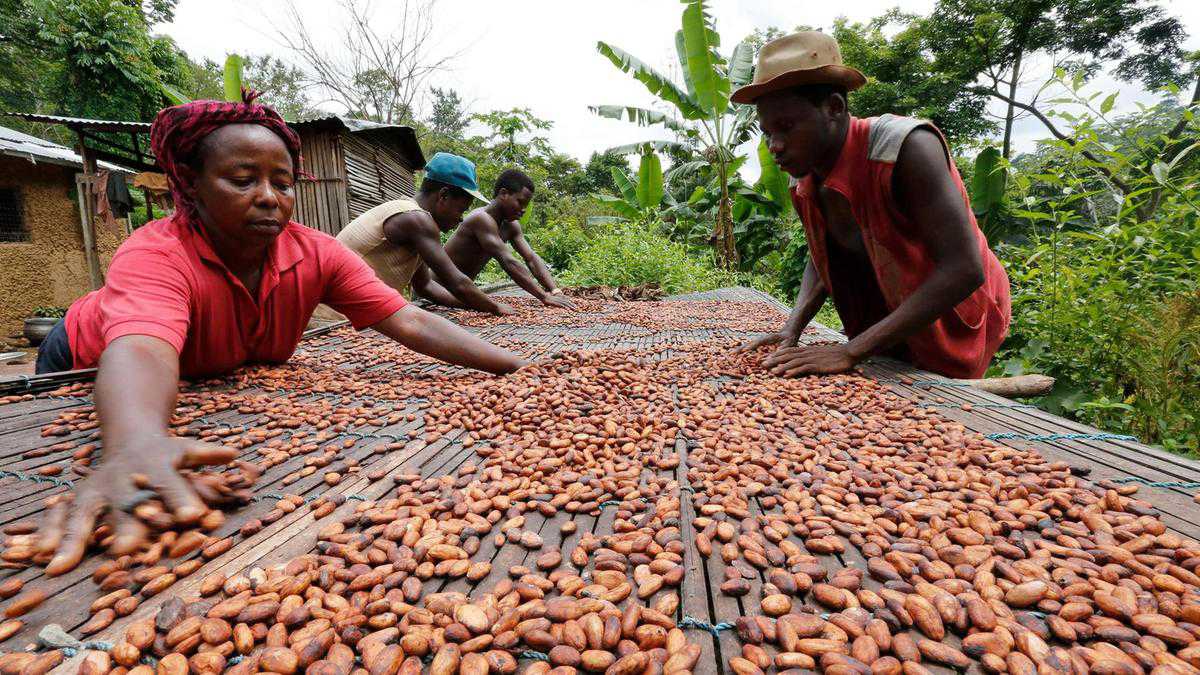Africa's cocoa suppliers want chocolate manufacturers to break off a good bigger little bit of profits
12 January, 2021

Chocolate demand remained strong through the entire pandemic as the world's most well-known comfort food was one of the pleasures continued to take pleasure from from their private homes.
The farmers who grow valuable cocoa, however, saw little benefit.
Cocoa may be the essential ingredient of chocolate and does not have any substitute. More than 70 per cent of the world's supply of cocoa originates from West Africa, regarding to Netherlands-based industry screen Cocoa Barometer.
Of this, half originates from merely two countries - Ghana and Ivory Coast. Various other regional countries such as Nigeria and Cameroon happen to be also expanding development, keen to seize a slice of the market that supplies the $130 billion chocolate industry.
“Cocoa features been a crucial commodity for our region,” says Hajia Maria Adamu-Zibo, the chief executive of Federated Commodities, a Ghana-based cocoa trader. The business is one of an increasing number of local companies moving into a business typically dominated by offshore companies from the US and Europe.
“Cocoa is not simply a cash crop for all of us; it has also become part of our politics. The cocoa sector feeds about 800,000 persons in the united states and conditions that affect the market could be very emotive.”
Only how emotive it usually is was demonstrated in December, when US confectionary company Hershey’s enraged the primary suppliers in Ghana and the Ivory Coastline, when it purchased a huge quantity of cocoa through ICE Futures, a New York-based commodity exchange.
Among the world’s largest confectionary manufacturers, Hershey’s would usually get directly through West African in-country agents. This time around it went beyond your usual channels, it is stated, because it wished to avoid a $400 surcharge these countries recently started to impose.
The ‘Living Cash flow Differential’ (LID) as the surcharge is called, is paid right to farmers, and is supposed to increase their incomes. Farmers, who typically earn half of a dollar a evening over a 12-month period, would see their returns boosted by a third, because of the LID.
“Any brand that's seen not to be serious on accepting the LID by mid-December 2020 need to consider all its cocoa beans from Ghana and Cote d’Ivoire as regular,” Joseph Aidoo, chief executive of Ghanaian regulator Cocobod. told the Environment Cocoa Foundation's meeting in November.
By ‘regular’, Mr Aidoo was discussing the many certifications coveted by confection manufacturers, that declare their items are sourced from exploitation-free farms, that usually do not use kid labour, or donate to deforestation. “We are ready to brand and shame these makes,” he said.
Certifications are increasingly vital that you consumers, especially younger, even more socially-conscious chocolate purchasers. Exploitation-free productions command a premium, therefore Hershey’s quickly caved and stated it could pay the LID.
Cargill, the US meals and agricultural trader, published a report in December that presents consumers are happy to pay reduced for ethically-sourced cocoa.
“Consumer expectations are bigger now than previously,” says Niels Boetje, managing director Cocoa at Cargill.
Among 18-to-34-year-olds, 76 % of those polled by Cargill said sustainability has become more vital that you them in the past year when choosing chocolate products.
Just above half of the also declared these were swapping conventional goods for all those deemed to be ethical, whether or not they cost even more. “Our research suggests that increasingly, consumers search for responsibly-sourced brands.”
The $400 LID supplements the $1,400 or in order that farmers earned per ton, during the last season. This sets farmers’ revenue per ton over $1,800, meaning the farm gate price is closer to the $2,500 per ton cocoa presently fetches on overseas commodities exchanges.
It really is hoped the LID will also spur demand for workers. An average grower uses two acres of property, based on the Cocoa Barometer, and generates half of a ton of beans a season. The land must be kept free from weeds and other expansion, with trees pruned and replanted, if necessary.
“Cocoa is labour-intensive, and we have a whole lot of unemployed people in Ghana,” says Nelson Kpodo-Tay, businesses director in Armajo Ghana, a cocoa trading house located in the capital, Accra. The bigger the acerage, the extra employees are needed, which put farmers in a bind. “Labour costs around 200 cedis ($34.06) to job one acre. Larger farms mean more expense.”
The 28 % upsurge in income delivered by the LID will go quite a distance to making extra labour less expensive, Mr Kpodo-Tay notes.
For now, most major confectioners including Mars, Nestle and Barry Callebaut have fallen in brand to aid the LID. Both Ghana and Ivory Coastline insist it really is here to stay.
The recently re-elected president of Ghana, Nana Akufo-Addo built the LID a central plank of his campaign strategy that swept him to victory last month. Sworn in for his second term on January 7, Mr Akufo-Addo says it'll modification the Ghanaian agriculture sector once and for all.
“The LID has been around the air for some time,” he told regional broadcast station OkayFM, shortly before the elections. “It’s nowadays implemented, and it is heading to be part of the cocoa pricing policy for Ghana and Ivory Coastline. It’s taken time, but now the insurance policy is working.”
Source: www.thenationalnews.com
